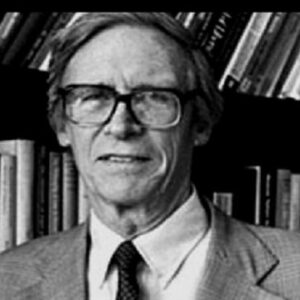John Rawls was a well-known American philosopher who focused on moral and political issues. He wrote ‘A Theory of Justice,’ which is now considered to be one of the most influential works in political philosophy. He received the National Humanities Medal and the Schock Prize for Logic and Philosophy. Aside from his philosophical career, Rawls served in the US Army during WWII, serving in the Pacific, New Guinea, the Philippines, and Japan. However, after seeing the Hiroshima bombing, he resigned. He completed his schooling after leaving the army and received his Ph.D. from Princeton University. He then became a professor at Harvard University, where he stayed for nearly 40 years.
Childhood and Adolescence
William Lee Rawls, an attorney, and Anna Abell Stump Rawls were the parents of John Rawls, who was born in Baltimore, Maryland. Early in his life, he experienced mental anguish after two of his brothers died of terrible illnesses while he was still a youngster.
He attended a Baltimore school for a short time before enrolling at the Kent School in Connecticut. He enrolled at Princeton University in 1939.
He was commissioned into the United States Army in 1943, shortly after receiving his bachelor’s degree in arts. He fought in the army during WWII but was forced to leave after witnessing the Hiroshima explosion.
After leaving the army, he returned to Princeton University in 1946 to pursue a PhD in moral philosophy.
‘A Study in the Grounds of Ethical Knowledge: Considered with Reference to Judgments on the Moral Worth of Character,’ he published in 1950.
He began teaching at Princeton University after receiving his PhD in 1950, a position he retained for two years.
A Career of John Rawls
He wrote ‘Outline of an Ethics Decision Procedure’ in the Cornell University magazine ‘Philosophical Review’ in 1951. He also wrote ‘Justice as Fairness’ and ‘The Sense of Justice’ in the same publication.
He received a Fulbright Fellowship to Oxford University in 1952. He returned to the United States of America, where he worked as an assistant professor at Cornell University before becoming an associate professor.
He became a full-time professor at Cornell University in 1962, and a tenured appointment at the Massachusetts Institute of Technology followed shortly after. He chose to teach at Harvard University instead.
In 1963, he contributed a chapter to the book ‘Nomos, VI: Justice’, Yearbook of the American Society for Political and Legal Philosophy, titled ‘Constitutional Liberty and the Concept of Justice.’
In 1967, he contributed a chapter to Peter Laslett and W. G. Runciman’s book, ‘Philosophy, Politics, and Society,’ titled ‘Distributive Justice.’ He wrote the article ‘Distributive Justice: Some Addenda’ the following year.
He wrote ‘A Theory of Justice,’ which was published by Harvard University Press’s Belknap Press in 1971. One of his most important books on political philosophy and ethics is this.
In November 1974, he published an essay in the ‘Quarterly Journal of Economics’ titled ‘Reply to Alexander and Musgrave.’ In the same year, he published a paper in the ‘American Economic Review’ titled ‘Some Reasons for the Maximin Criterion.’
In 1993, he published ‘Political Liberalism,’ an updated version of ‘A Theory of Justice.’ The Columbia University Press released the book.
In the same year, he published an article titled “The Law of Peoples” in the journal “Critical Inquiry.”
In response to criticism of his work, ‘A Theory of Justice,’ he published ‘Justice as Fairness: A Restatement’ in 2001. Erin Kelly edited the book, which contained a condensed version of the philosophies.
Major Works of John Rawls
One of his key works and magnum opus, ‘A Theory of Justice,’ was generally lauded at the time of release as ‘the most important work in moral philosophy since the end of World War II.’
Achievements & Awards
For his contributions in ‘Logic and Philosophy,’ he was awarded the Schock Prize in 1999.
He was honored with the National Humanities Medal in 1999.
Personal History and Legacy
Diphtheria struck him while he was only seven years old, in 1928. He was diagnosed with pneumonia the following year.
Margaret Fox, a Brown University graduate, was his wife in 1949.
This well-known American political philosopher disliked giving interviews and was uncomfortable in front of the camera.
He didn’t believe in God.
He had a series of strokes in 1995, and was unable to work as a result.
He died in Lexington, Massachusetts, at the age of 81.
Estimated Net Worth
John Rawls is one of the wealthiest philosophers and one of the most well-known. John Rawls’ net worth is estimated to be $1.5 million, according to Wikipedia, Forbes, and Business Insider.
Trivia
He was an influential moral and political philosopher in the United States, and his work in political philosophy is known as Rawlsianism.


